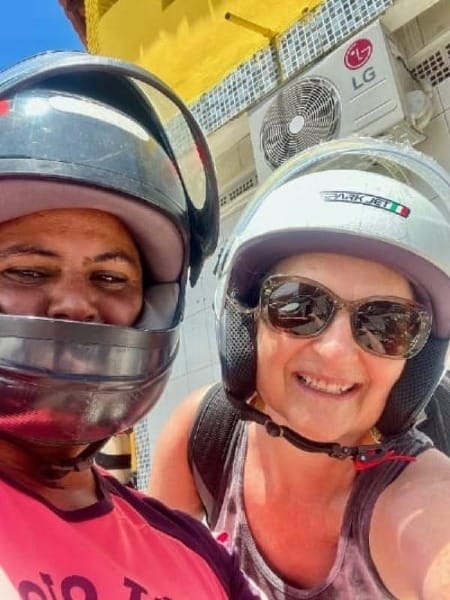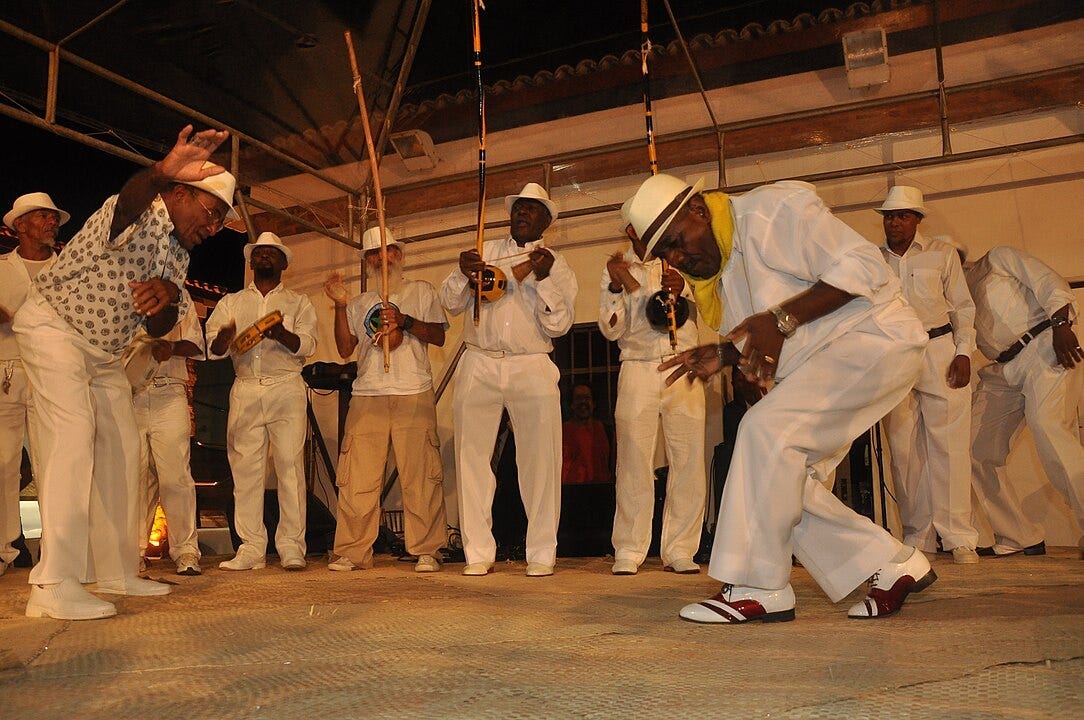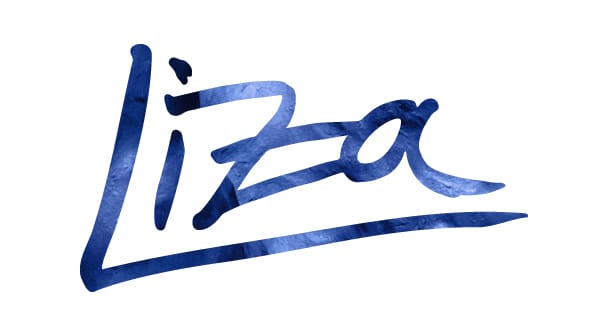A Mototaxi, Comfort Zones, and Feeling More Human
The warm, polite, and respectful exchanges of touch that nobody blinks an eye at here in Afro-Descendant dominated Bahia are helping me feel more fully human again.

(This post was migrated from Substack)
My right hand clenching the rear passenger handle, my left resting on my driver’s shoulder, my core, hip, and thigh muscles close to seizing with the pressure to maintain my balance, I ride the mototaxi.
Janilson pilots us expertly down the steep, ditch-laden, dirt roadway, we judder over cobblestoned streets and finally, cruise the paved road—with many a slowdown to navigate the speed bumps and a swerving acceleration to dodge lumbering trucks and clumps of cars—to reach the center of the little town of Mar Grande where I buy essentials like powdered milk (I haven’t seen evidence of fresh on this island), squat bananas recently picked, stubby white sweet potatoes, and as a treat, the occasional scoop of maracujá ice cream.
I am too polite? sensitive? afraid to presume? embarrassed? culturally indoctrinated? to wrap my arms around Janilson’s waist, which paradoxically would help me feel more secure on the motorbike. He has not invited me to do so. And if he had, how comfortable would I really feel? Given the habits and norms of most of my various geographic immersions, this is tinned sardine-level proximity between two strangers. It’s personal, unlike the anonymous, suffocating crush of all those taller-than-you rush hour bodies crammed into a subway car. When I lift my hand to reposition it on his shoulder, I feel the effect of my palm on his faded orange sunshirt: our joint perspiration intermingling under the tropical sun. The headwind delivers the sharp residue of some kind of megacorp-engineered personal care product—his shampoo? deodorant? laundry liquid?—to my nostrils.
Five days ago, on our fifth trip, I finally, finally!, managed to fasten and unfasten the helmet without Janilson’s help. Until then when his hands would maneuver the strap and the tricky buckle, his fingers brushing my chin and our faces so very close, I’d avert my eyes to shut an invisible door on the momentary but necessary intimacy.
Regaining this tiny measure of independence, regaining faith in my ability to learn, which is currently facing onslaughts on multiple exacting fronts including language, percussion, and Capoeira, I laughed in relief at my accomplishment, and true to what I have experienced of his low key demeanor thus far, Janilson chuckled softly, his twinkling eyes meeting mine. Perhaps I am not so pathetic in his (or my?) eyes after all.
Even before the the extreme physical isolation and touch deprivation of these pandemic years, living in the U.S.—where crossing the borders of personal space often requires passports and visas—meant rarer occasions to come into benign, benevolent, fond, unmedicalized, or even uncomfortable contact with another person’s body.
In France, between acquaintances we’d kiss the skin (not the air) on each others’ cheeks hello and goodbye, even when we’d just met. As an adult in the U.S., I soon found planting a kiss on the cheek of a friend or a friend-adjacent to express affection to be a chilling no-no, and regularly subject to misinterpretation: “Um, no, I am not trying to date you.”
I don’t know what it is about the English speaking world—the Free Hugs Campaign originated out of desperation in Australia—but the warm, polite, and respectful exchanges of touch that nobody blinks an eye at here in Afro-Descendant dominated Bahia are helping me feel more fully human again.
These exchanges remind me of our Capoeira Angola rituals: we clasp hands in mutual respect and acknowledgment (whether felt or not) before engaging in each and every game. We connect with our eyes, looking at and watching each other for signs of deception, trickery, or the telegraphing of a next move.
Mastery means we have the physical, emotional, and spiritual control to show we could have landed that kick. It means we never place hands on each other, unless to engage in a brief “chamada,” a “call” in which two players switch up the flow of the game to, for example, approach each other, join palms, and engage in this potentially dangerous dance-like interlude requiring both courage and playfulness. It means we never place arms on each other, unless to engage in a different type of chamada, or to hug at the end of a game, always taking great care to keep our palms off each others’ shirts. It means completing a game with nary a spot of dust or dirt on your all-white clothing

Here on the island of Itaparica, where I have traveled in part to deepen my study of Capoeira Angola, the mototaxi is the quickest and cheapest way to get around, especially for short distances. During my stay Janilson and I will remain careful driver and hopeful client. I’ll continue to perch in uncomfortable close contact with his body on his bike, we’ll exchange heartfelt smiles and a laugh or two at our efforts to communicate, and I’ll keep praying to The Gods that the death grip of my right hand on the passenger handle behind me and my tentative left hand on his shoulder in front of me will be enough to keep me (and by extension him) safe on our bumpy travels.
